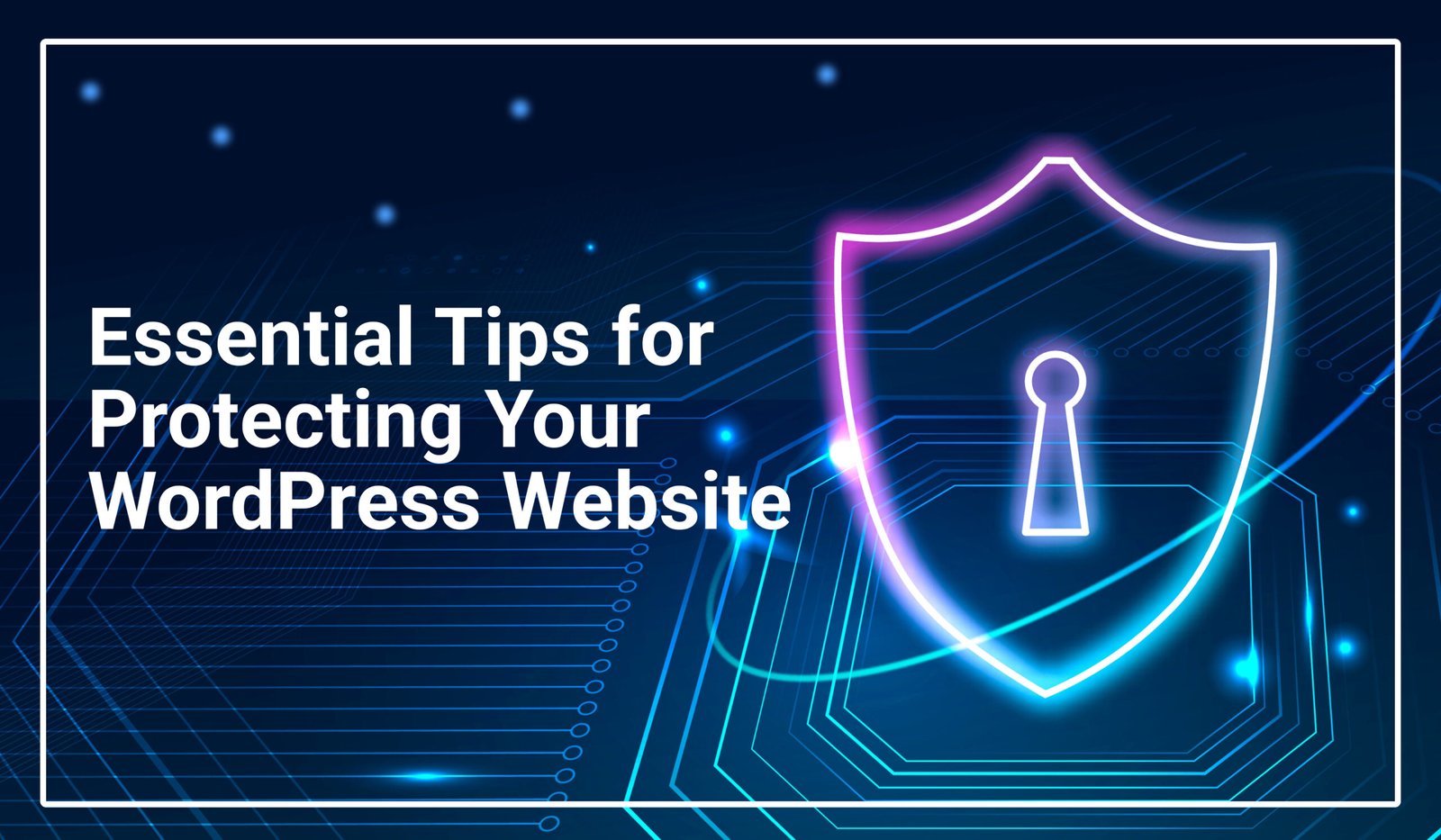
Maintaining the security of your WordPress website is crucial in today’s digital age. With cyber threats becoming more sophisticated, safeguarding your online presence has never been more important. In this guide, we will walk you through essential tips for protecting your WordPress website. By following these steps, you can enhance your site’s security and keep your data safe:
Keep WordPress Updated:
- Importance of Updates: Regularly updating WordPress is one of the simplest yet most effective ways to protect your website. Updates often include security patches that address vulnerabilities found in previous versions. Therefore, it is essential to keep WordPress, themes, and plugins updated to the latest versions.
- How to Update: To update WordPress, navigate to your dashboard and click on the “Updates” tab. From there, you can update your core WordPress files, themes, and plugins with just a few clicks. Remember to back up your site before performing any updates to avoid potential issues.
Use Strong Passwords
- Creating Strong Passwords: Using strong, unique passwords is a fundamental aspect of protecting your WordPress website. Avoid common passwords like “password123” or “admin”. Instead, use a combination of uppercase and lowercase letters, numbers, and special characters.
- Password Management Tools: Consider using a password manager to generate and store complex passwords securely. Tools like LastPass or 1Password can help you manage your passwords effectively and ensure you use unique credentials for each site.
Implement Two-Factor Authentication
- What is Two-Factor Authentication?: Two-factor authentication (2FA) adds an extra layer of security by requiring a second form of verification in addition to your password. This could be a code sent to your phone or generated by an app like Google Authenticator.
- Setting Up 2FA: To enable 2FA on your WordPress site, install a plugin like “Two Factor Authentication” or “Google Authenticator”. Follow the plugin’s setup instructions to add this extra layer of security to your login process.
Regularly Backup Your Website
- Importance of Backups: Regular backups are crucial for protecting your website data. In case of a security breach or data loss, having a recent backup ensures you can quickly restore your site to its previous state.
- How to Backup: There are several plugins available for backing up your WordPress site. Plugins like “UpdraftPlus” or “BackupBuddy” allow you to schedule automatic backups and store them in remote locations such as Dropbox, Google Drive, or Amazon S3.
Choose a Secure Hosting Provider
- Why Hosting Matters: Your hosting provider plays a significant role in your website’s security. A reliable and secure hosting provider will offer robust security measures to protect your site from various threats.
- Selecting a Host: When choosing a hosting provider, look for features such as SSL certificates, firewall protection, malware scanning, and regular backups. Providers like SiteGround, Bluehost, and WP Engine are known for their security-focused hosting plans.
Install Security Plugins
- Benefits of Security Plugins: Security plugins offer comprehensive protection for your WordPress website. They can help prevent, detect, and remove malicious threats.
- Recommended Plugins: Some of the top security plugins for WordPress include “Wordfence Security,” “Sucuri Security,” and “iThemes Security.” These plugins offer features like firewall protection, malware scanning, and login security to keep your site safe.
Limit Login Attempts
- Preventing Brute Force Attacks: Limiting login attempts can help protect your WordPress site from brute-force attacks. These attacks involve repeated attempts to guess your login credentials.
- How to Limit Attempts: To limit login attempts, install a plugin like “Login LockDown” or “Limit Login Attempts Reloaded.” These plugins restrict the number of login attempts from a single IP address, making it harder for attackers to gain access.
Secure Your Website with HTTPS:
- Importance of HTTPS: HTTPS encrypts data transferred between your website and its visitors, ensuring it cannot be intercepted by malicious actors. It also boosts your site’s credibility and can improve search engine rankings.
- Implementing HTTPS: To enable HTTPS on your WordPress site, you need an SSL certificate. Many hosting providers offer free SSL certificates through Let’s Encrypt. After obtaining the certificate, you can use a plugin like “Really Simple SSL” to enable HTTPS across your site.
Conclusion
Protecting your WordPress website doesn’t have to be daunting. By following these essential tips, you can significantly enhance your site’s security and protect your valuable data. Remember to keep your WordPress updated, use strong passwords, implement two-factor authentication, regularly back up your website, choose a secure hosting provider, install security plugins, limit login attempts, and secure your site with HTTPS. Taking these proactive steps will help you maintain a safe and secure online presence.
At Softadroit, we believe that security is just one part of a successful website. If you’re looking to elevate your online presence with a beautifully designed, user-friendly, and secure WordPress site, our expert web design services are here to help. We specialize in creating custom WordPress websites that not only look stunning but are also optimized for performance and security. Let us handle all the technical details, so you can focus on what you do best—growing your business. Contact Softadroit today for a free consultation and see how we can transform your website into a powerful tool for success!


